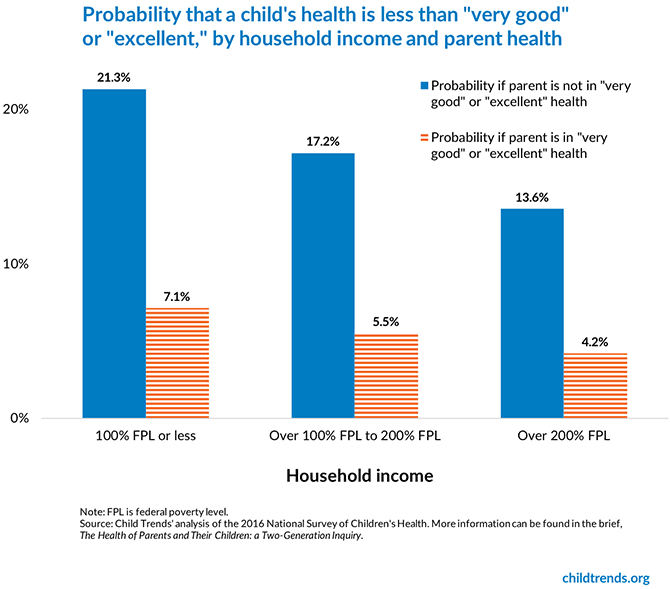Recent research by Child Trends found that a parent’s health was more strongly associated with his or her child’s health than many other socioeconomic or demographic factors, including family income, family structure, parents’ level of education, and the child’s sex, age, or race. Data for this research were sourced from a large national survey of parents or other adult guardians who reported on their own health and their child’s health.
When parents are in “very good” or “excellent” health, the odds that their child’s health will also be “very good” or “excellent” are about 3.7 times greater than if parents are not in “very good” or “excellent” health (net of the aforementioned other factors).
The chart below illustrates the association between a child’s health and their parent’s health, for three categories of household income. As shown in each set of bars, children with a parent whose health is non-optimal are substantially more likely themselves to have non-optimal health, relative to children who have healthier parents. For example, the left set of bars shows that, among poor households where a parent has non-optimal health, about one in five (21 percent) children also has health that is non-optimal. In contrast, among poor children with a parent with “very good” or “excellent” health, only about 1 in 15 (7 percent) have health that is non-optimal.

© Copyright 2025 ChildTrendsPrivacy Statement
Newsletter SignupLinkedInYouTubeBlueskyInstagram